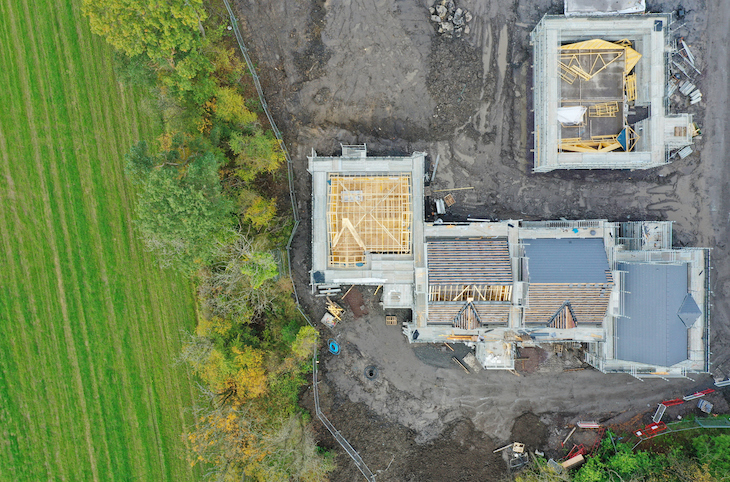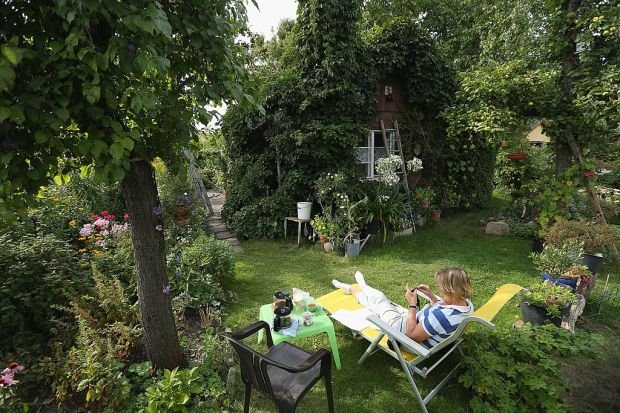Michael Gove has announced today that the government will scrap EU-era pollution laws which are preventing homes being built. The move to liberalise the so-called ‘nutrient neutrality’ rules – which say that any new development can’t add additional nutrients into the environment – is designed to ease some of the bottlenecks around building and comes with the bonus of sweeping away EU-era regulation.
The current position for nutrient neutrality is a complex one. A combination of EU law, strict judicial interpretation and cautious domestic implementation has turned a well-intentioned piece of regulation into a millstone around builders’ necks. The original rules began with a drive to protect vulnerable species and habitats from run-off pollution, but now mean that you can only build near protected sites if you demonstrate nutrient neutrality across a project.
The zealous application of this principle means that development has become almost impossible in 62 local authorities. Even a minimal increase in pollution has been able to kibosh construction, while demonstrating compliance with the neutrality scheme has created significant costs and delays for developers. Housebuilders say that the rules have held up the building of more than 150,000 homes, while the government believe their change will mean 100,000 more homes can be completed before the decade is out.
Inevitably, Gove’s proposals have drawn ire from environmental groups. The Wildlife Trust and Greenpeace have attacked the plans, as have the Liberal Democrats and Labour. Yet the proposal is about more than simply scrapping regulation.
Under the new proposals, Natural England will be given more than a quarter of a billion to offset the impact of the scheme. It will also be paired with other rules toughening environmental requirements for farmers and water companies, as part of a broader ‘Plan for Water’ that aims to create cleaner rivers.
It’s a subtle approach from the government. Tweaking these regulations might unlock housing and it avoids a head-on fight with local Nimbys, as decisions are still made by councils. It also doesn’t need to pass through parliament, meaning the government avoids a battle with its own development-sceptic MPs. Whether it will yield political benefits, however, remains an open question.
The houses enabled by this rule change will take time to be built, and it will only mean an extra 20,000 homes a year over the next half decade or so. This comes nowhere close to clearing the 4 million shortfall of homes campaigners say the country needs. The reforms may not be enough to appease younger voters either, especially as Labour look increasingly bullish on building with plans to create a raft of new towns.
Any weaking of restrictions might also harm the Tories. Many of their voters don’t believe we need more housing and are worried about environmental protections. In typically Conservative shires, the party has found new rivals, at the local level at least, in the Greens while the Lib Dems are also resurgent in areas where they can punish the party for allowing construction. Measures like this may make it harder to retain older, homeowning environmentally conscious voters in key seats.
There is much to admire in the policy. It is a smart, deregulatory way of encouraging new housing. It also gives the Tories a chance to bash EU regulation and show that they are gradually rolling back legislation from Brussels. In many ways it is a typical Goveian move. Given how close the next election is though, it’s unlikely to have much political impact.
Got something to add? Join the discussion and comment below.
Get 10 issues for just $10
Subscribe to The Spectator Australia today for the next 10 magazine issues, plus full online access, for just $10.




















Comments
Don't miss out
Join the conversation with other Spectator Australia readers. Subscribe to leave a comment.
SUBSCRIBEAlready a subscriber? Log in